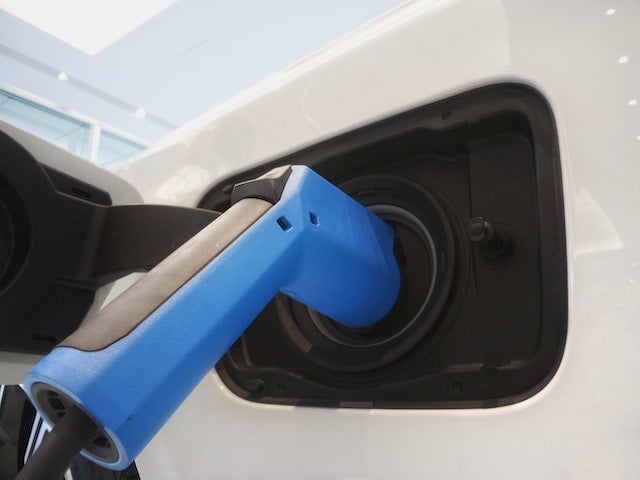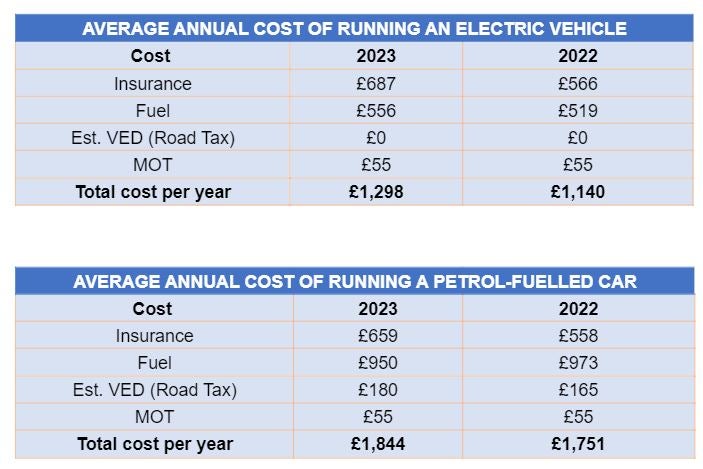
New research from Compare the Market shows that the gap in running costs between the different types of vehicles has declined from 2022 when EVs were £610 cheaper to run.
The research, which analyses the price of insurance, fuel, and road taxes, shows that the average annual cost of running an electric vehicle is £1,298. In comparison, a petrol-fuelled car typically costs £1,844 to run for 12 months.
The cost of driving both electric and petrol-fuelled cars has increased year-on-year adding further financial pressure to any motorists already struggling with the wider cost of living crisis.
For EVs, the cost has risen by £158 on average year-on-year, primarily due to the higher cost of car insurance in recent months. The average premium for electric vehicles has increased by £121 year-on-year and now costs up to £687.
In comparison, the typical insurance premium for a petrol-fuelled car costs up to £659, having risen by £101 year-on-year.

The cost of insurance is increasing in part as insurers face higher repair costs. The ABI has stated that the costs of vehicle repairs leapt by 33% over the year since Q1 2022 to £1.5 billion, the highest figure since at least 2013.
How well do you really know your competitors?
Access the most comprehensive Company Profiles on the market, powered by GlobalData. Save hours of research. Gain competitive edge.

Thank you!
Your download email will arrive shortly
Not ready to buy yet? Download a free sample
We are confident about the unique quality of our Company Profiles. However, we want you to make the most beneficial decision for your business, so we offer a free sample that you can download by submitting the below form
By GlobalDataAs EVs are typically more expensive to purchase than petrol-fuelled equivalents, they are often also more costly to repair. Replacing some parts of electric vehicles such as new batteries can be particularly costly.
Electric cars are growing in popularity as Society of Motor Manufacturers and Traders data show sales of battery EVs have increased 58.7% year-on-year in May 2023. However, EV owners will face significantly higher running costs in two years’ time when they need to start paying Vehicle Excise Duty from April 2025.
This will cost EV owners £180 per year from the second year of car registration at the current rate of tax. Many EV owners will also pay the expensive car supplement from 2025. This is currently set at £390 per year for cars with a list price of £40,000 or more in their second to sixth years of registration.
This means that EV owners could soon need to pay £570 more in road tax each year. Julie Daniels, motor insurance expert at Compare the Market, said: “Drivers who’ve made the switch to an electric vehicle will be glad to see they are often substantially cheaper to run than petrol-fuelled cars.
“As well as helping the environment, EV owners benefit from fuel and tax savings. However, the significant upfront cost of buying an electric car and installing a home charging point will prevent many drivers from being able to afford this option, especially during the cost-of-living crisis.
“The rising cost of car insurance for electric vehicles and higher road taxes from 2025 may also make switching to an electric vehicle less appealing.”
Panorama highlights ‘poor education around electric vehicles’







